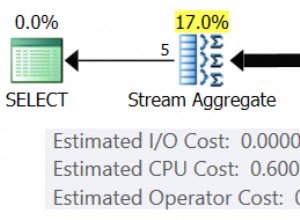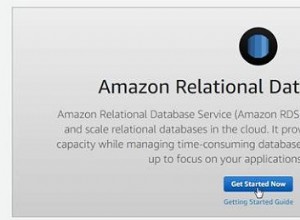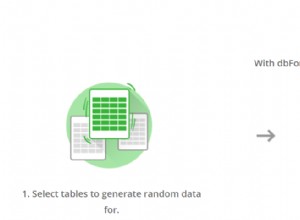J'ai répondu à une question similaire ici https://stackoverflow.com/a/26633820/3989608
Quelques faits sur les valeurs NULL et INDEX :
-
Les clés entièrement NULL ne sont pas entrées dans un B*Tree "normal" dans Oracle
-
Par conséquent, si vous avez un index concaténé sur, par exemple, C1 et C2, vous y trouverez probablement des valeurs NULL - puisque vous pourriez avoir une ligne où C1 est NULL mais C2 n'est PAS NULL - cette valeur de clé sera dans l'index.
Une partie de la démonstration de Thomas Kyte à ce sujet :
example@sqldat.com> create table t
2 as
3 select object_id, owner, object_name
4 from dba_objects;
Table created.
example@sqldat.com> alter table t modify (owner NOT NULL);
Table altered.
example@sqldat.com> create index t_idx on t(object_id,owner);
Index created.
example@sqldat.com> desc t
Name Null? Type
----------------------- -------- ----------------
OBJECT_ID NUMBER
OWNER NOT NULL VARCHAR2(30)
OBJECT_NAME VARCHAR2(128)
example@sqldat.com> exec dbms_stats.gather_table_stats(user,'T');
PL/SQL procedure successfully completed.
Eh bien, cet index peut certainement être utilisé pour satisfaire "IS NOT NULL" lorsqu'il est appliqué à OBJECT_ID :
example@sqldat.com> set autotrace traceonly explain
example@sqldat.com> select * from t where object_id is null;
Execution Plan
----------------------------------------------------------
0 SELECT STATEMENT Optimizer=CHOOSE (Cost=3 Card=1 Bytes=34)
1 0 TABLE ACCESS (BY INDEX ROWID) OF 'T' (Cost=3 Card=1 Bytes=34)
2 1 INDEX (RANGE SCAN) OF 'T_IDX' (NON-UNIQUE) (Cost=2 Card=1)
En fait - même si la table n'avait pas de colonnes NOT NULL, ou si nous ne voulions/n'avions pas besoin d'avoir un index concaténé impliquant OWNER - il existe un moyen transparent de trouver les valeurs NULL OBJECT_ID assez facilement :
example@sqldat.com> drop index t_idx;
Index dropped.
example@sqldat.com> create index t_idx_new on t(object_id,0);
Index created.
example@sqldat.com> set autotrace traceonly explain
example@sqldat.com> select * from t where object_id is null;
Execution Plan
----------------------------------------------------------
0 SELECT STATEMENT Optimizer=CHOOSE (Cost=3 Card=1 Bytes=34)
1 0 TABLE ACCESS (BY INDEX ROWID) OF 'T' (Cost=3 Card=1 Bytes=34)
2 1 INDEX (RANGE SCAN) OF 'T_IDX_NEW' (NON-UNIQUE) (Cost=2 Card=1)
Source :Quelque chose à propos de rien par Thomas Kyte




